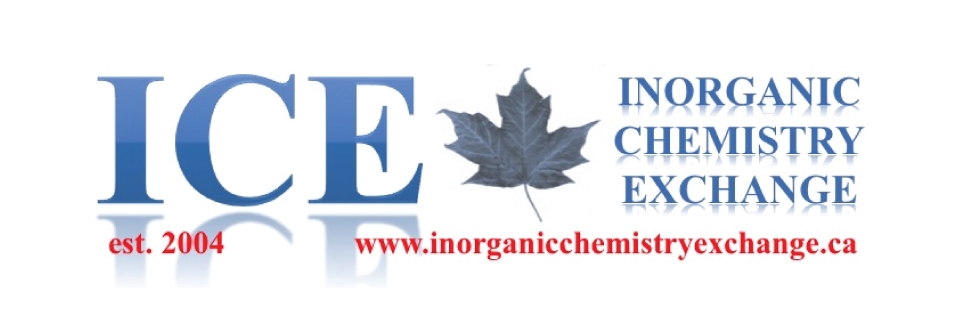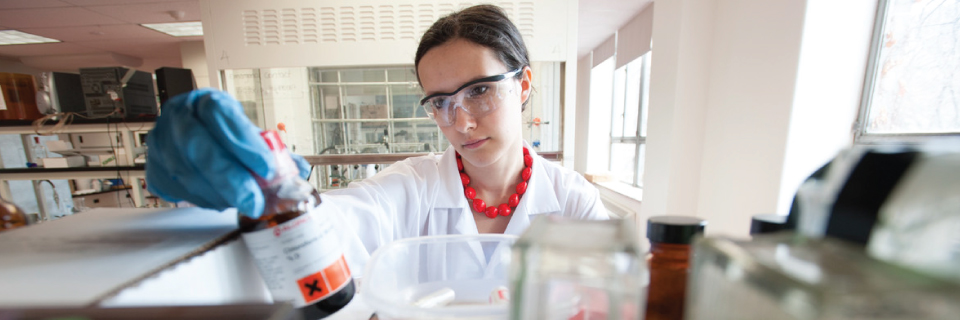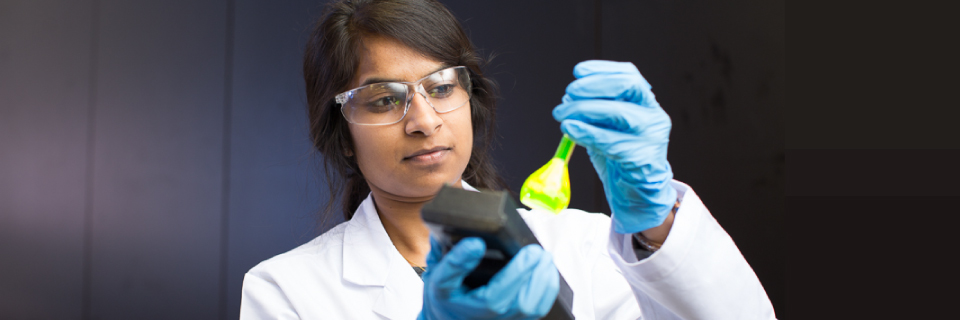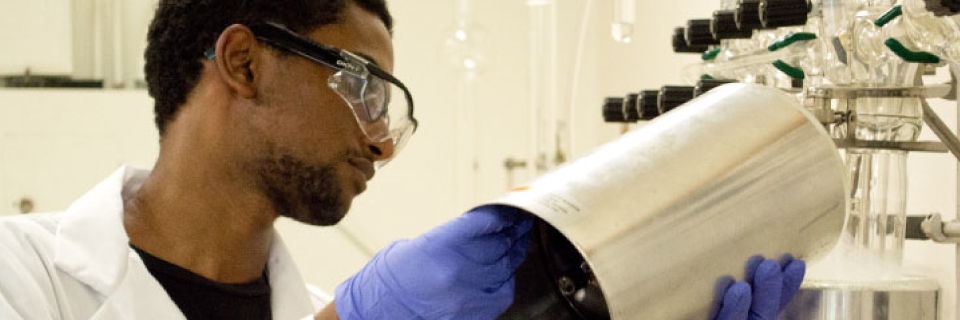
Summer 2024 Applications due November 3, 2023 - please submit to your local ICE recruiter
Click the links below to see what kind of exciting research is going at the ICE2023 host destinations
Principle Investigator |
University, City |
Research Keywords |
|
Li-ion batteries; Na-ion batteries; materials chemistry; nanostructured materials; intercalation chemistry | |
Kate Marczenko (external link, opens in new window) & Seán Barry (external link, opens in new window) |
Carleton, Ottawa |
materials chemistry, crystal engineering, structure-property relationships, modelling. |
UWaterloo, Waterloo |
solid state materials, X-ray absorption spectroscopy, catalysis, reaction mechanisms, electrochemistry |
|
Western, London |
organometallics, main-group, energy and sustainability, carbon dioxide fixation, boron |
|
ConcordiaU, Montreal |
solar energy conversion, inorganic materials, photocatalysis, photoluminescence, nanocrystals |
|
Toronto Metropolitan University, Toronto |
sensors, materials chemistry, physical organic chemistry, synthesis, spectroscopy |
|
|
oxide glasses, biomaterials, solid-state NMR spectroscopy, structure-property | |
McGill, Montreal |
catalysis, main group elements, green chemistry, synthesis |
|
UVictoria, Victoria |
Catalyst development, high-throughput experimentation, organometallics, organic synthesis, predictive modeling |
|
| Trent University, Peterborough |
carbon materials, environmental remediation, surface functionalization, ATRP, click chemistry |
|
UCalgary, Calgary |
energy storage, metal capture, electrochemistry, synthesis, main group and coordination chemistry |
|
|
Printed Electronics, Catalysis, Photovoltaics, Hydrogen Production/Storage, Conjugated Materials | |
ConcordiaU, Montreal |
organic oxidations, catalyst development, metal-radical complexes, sustainable chemistry, redox-active materials |
October 2023 - Submit your application to your faculty recruiter (below) by Nov 3rd
Nov/Dec 2023 - Successful applicants will be matched with summer supervisor and informed
January 2024 - Work with faculty host to prepare and submit your NSERC USRA or equivalent summer grant
May 2024 - Travel (travel costs are covered) to your host institution and begin your research
August 2024 - Travel to Montreal, QC (travel costs are covered) to present your summer research to the rest of the ICE participants
Below are just some of the reasons why you may want be a part of ICE this summer:

1. Expand your network and leave your comfrot zone by travelling and working at other Canadain Universities

2. It is an amazing experiential learning opportunity where you can be a part of cutting edge research in the areas of nanomaterials, solar energy, catalysis, and so much more!

3. You get the opportunity to apply what you are learning in the classroom and further develop your critical thinking and problem solving skills with the help of amazing mentors.

4. You get paid ($$$) and have the opportunity to go to conferences and the travel expenses are also covered as part of the program!
In conversation with Dr. Lisa Rosenberg, one of the co-founders of the ICE program
Q. Lisa, how did the ICE exchange get started in 2004?
A. Deryn Fogg and I had a series of discussions arounded the fact idea that across Canada, chemistry researchers were eager to recruit outstanding graduate students, and that we were all essentially training each others’ future coworkers. Recognizing the great success of the RISE programs aimed at helping undergraduate students to think maturely and broadly about their career options in mass spectrometry and photochemistry, we decided our field of inorganic chemistry needed the same type of program to increase its visibility among talented undergraduates. The goal was to identify and nurture the abilities of promising undergraduates, by giving them exciting, challenging, out-of-province summer research positions. We kept it simple the first year: Deryn sent a great student to spend the summer working in my lab in Victoria. Sébastien Monfette, who is now a research scientist at Pfizer, still speaks of how formative that experience was for him. Deryn had just become Chair of the Inorganic Division of the CSC. At the Division AGM that year (2004), she and I, articulated her vision for a larger-scale program, and it was unanimously approved. She commissioned me, as a Division Executive member at large, to set up the ICE program as we now know it.
Q. Lisa, reflecting on your original motivation for the program, what would you say are some of it greatest accomplishments over the last 10 years?
A. As we expected, the program has identified and supported many outstanding students over the years, many of whom have gone on to graduate school in Chemistry, and other professional careers. What we did not fully anticipated was the collegiality and community-building that would occur among the faculty as well. The recruitment portion of the program puts us in the unusual position of selling other peoples’ research to our brightest undergraduates, and at the end-of-summer conference we get to know our colleagues and about their research programs in an informal setting where the focus is not on us (!). The network building and exchange of ideas moves outwards from this program in great waves, for students and faculty alike.
Pictures and Alumni coming soon... but while you wait, you should consider becoming a future alumni yourself!
ICE Program Coordinator
Dr. Johanna Blacquiere
Western University
johanna.blacquiere@uwo.ca
ICE Recruitment Coordinator
Dr. Marcus Drover (external link)
Western University
marcus.drover@uwo.ca (opens in new window)
ICE Webmaster
Dr. Bryan Koivisto
Toronto Metropolitan University